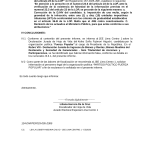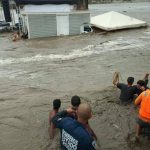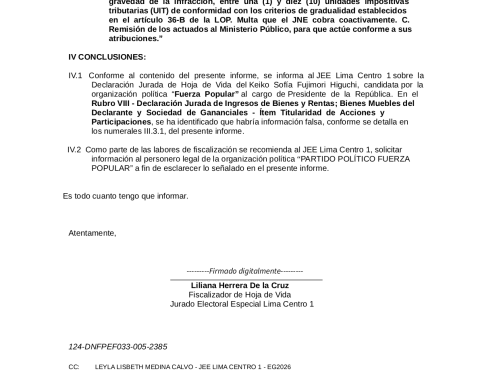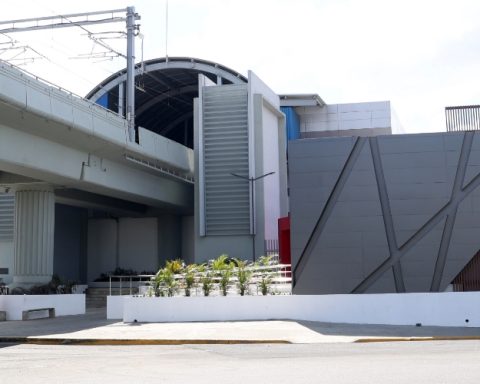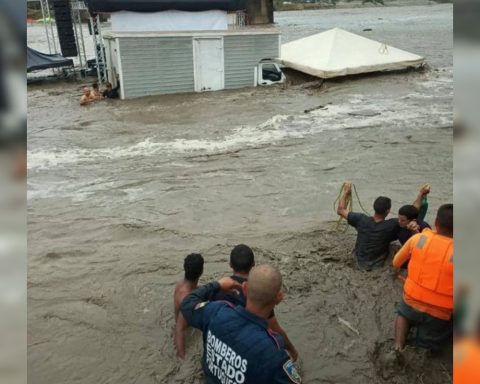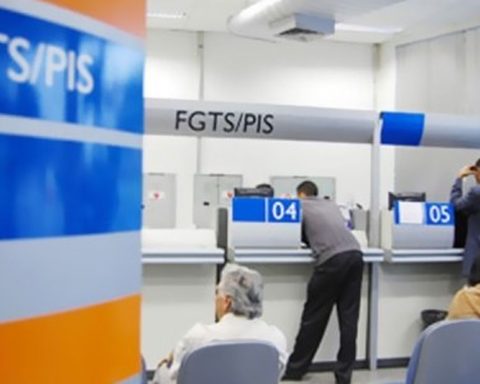A day after the National Assembly canceled the legal status of five universities, police officers and civilian groups guarded the perimeter of two of them, the Polytechnic University of Nicaragua (Upoli) and the Popular University of Nicaragua (Uponic). Situation to which was added the cancellation of seven other companies linked to foreign private universities, generating more tension among the affected educational community.
At Upoli, which in 2018 was taken over for almost two months by students who demonstrated against the Daniel Ortega regime, civilians and police officers, on motorcycles and patrol cars, arrived early in the morning and remained outside the campus for much of the day. . But the authorities of that house of studies avoided commenting on the matter.
However, the Upoli students criticized in a statement the Nicaraguan authorities that “in a treacherous manner” stripped that university, with more than half a century of existence, of its legal personality, “so that it stops functioning normally.”
“With great indignation we pronounce ourselves and we stand in solidarity with all the students from other houses of study, who in the same way were taken away the opportunity and security to give continuity to their classes, as well as to complete their careers”, they pointed out in the written.
Likewise, the students asked that the jobs and management of the university be maintained, in addition that “our grades and academic record be kept intact and no student be exposed for demanding their rights to have a decent and quality education as mandates our Constitution”.
Meanwhile, at the Popular University of Nicaragua (Uponic), police surveillance was recorded both in its central building in Managua and in one of its branches in Jinotega.
Universities canceled at the order of the CNU
The universities that were banned on Wednesday are Upoli, Uponic, the Catholic University of the Dry Tropics (Ucatse), the Nicaraguan University of Humanistic Studies (Uneh) and the Paulo Freire University (UPF).
The closure was applied because allegedly the affected institutions “They have failed to deliver financial reports to the Department of Registration and Control of Non-Profit Civil Associations” of the Ministry of the Interior, or because their “Board of Directors is headless,” according to the explanatory statement of the decree. Therefore, the National Council of Universities (CNU) said that it will guarantee academic continuity for students.
After the cancellation, UPF informed the student community that it will proceed “to prepare the information on the financial, academic and administrative status of the careers and their work areas for their due delivery to the CNU authorities.” So that “with the information we deliver” the governing body of the universities can guarantee educational continuity.
Meanwhile, the Uneh indicated through a statement that —despite not having been officially notified of what was done by the National Assembly— it is willing to facilitate “the entire process of transferring qualifications and academic records to whom the CNU authorities indicate”, in such a way that students can complete their studies.
In the case of Ucatse, belonging to the diocese of Estelí, it has not yet ruled on the cancellation of its legal status. However, sources from the city of Estelí indicated that the university had already been intervened by the CNU.
The student of Political Science and Public Management, Neyma Hernández, pointed out that she is “very concerned” about the fact that she will now finish her degree at a university controlled by the Daniel Ortega regime, which has brutally repressed students who think differently. .
The cancellation of the universities “affects us a lot because we know the (public) educational model that exists in Nicaragua and the way things are done,” said Hernández. “We are in a dictatorship that wants to collapse everything (the educational system) so that there is no civic resistance,” he added.
After foreign universities
The regime’s crusade against higher education centers continued this Thursday. This time it was the Ministry of the Interior (Migob) that published a resolution in La Gaceta, the official newspaper of the State, in which it announced the cancellation of the legal status of seven companies linked to foreign private universities.
According to the Migob resolution, the canceled companies were: Thomas More University Association (UTM), Central American University Association of Business Sciences (UCEM), Florida International University, Michigan State University, University of Mobile Corporation, Private University Foundation in Market Sciences and Wake Forest University.
Like the five universities canceled through the National Assembly, the Migob accuses these seven companies of having failed to comply with “their obligations under the laws that regulate non-profit organizations in Nicaraguan territory (Law 147, Law 977 and its regulations)”, and of not having reported the composition of their boards of directors from the country of origin, the donations they received from abroad and the identity documents of directors, legal representatives and fund providers.
The Thomas More University, a few hours after the resolution of the Ministry of the Interior was disclosed, issued a statement in which they claim to have no links with the Thomas More University Association canceled by this state portfolio, since this higher education center is registered in Nicaragua.
Also, the head of marketing of the Central American University of Business Sciences (UCEM), told the newspaper La Prensa that the canceled association has no connection with that university, since they have been registered and registered in Nicaragua since 1993 and that this company canceled by the Government, would have stopped operating a long time ago, so they continue with their normal activities.
“To take away from a university its autonomy is to take away its spirit”
The unexpected cancellation of the five universities can only have a negative impact on society, valued the academic Ernesto Medina, and —like almost everything in education— “the effects will be seen in the medium and long term”, since immediately only the enormous confusion of those directly affected is perceived.
The academic also valued that with the intervention of the CNU in these universities “any hint of autonomy that they may have had ends and to take away its autonomy from a university is to take away its spirit.” Worse at a time when the country is going through a deep socio-political crisis.
Currently the public universities under the control of the CNU “are totally absent in any effort to project the future of the country because their main concern is to have people controlled, quiet, not talking, not thinking, and this is going to be transferred to these other universities, which were not the great wonder of contribution to society, but at least they had a space of freedom that public universities do not have, “said Medina.
Thus, the academic concludes, that Nicaragua is about to enter “a stage of stagnation, of obscurantism, which is going to have a price and that we are going to see clearly in the near future.”







